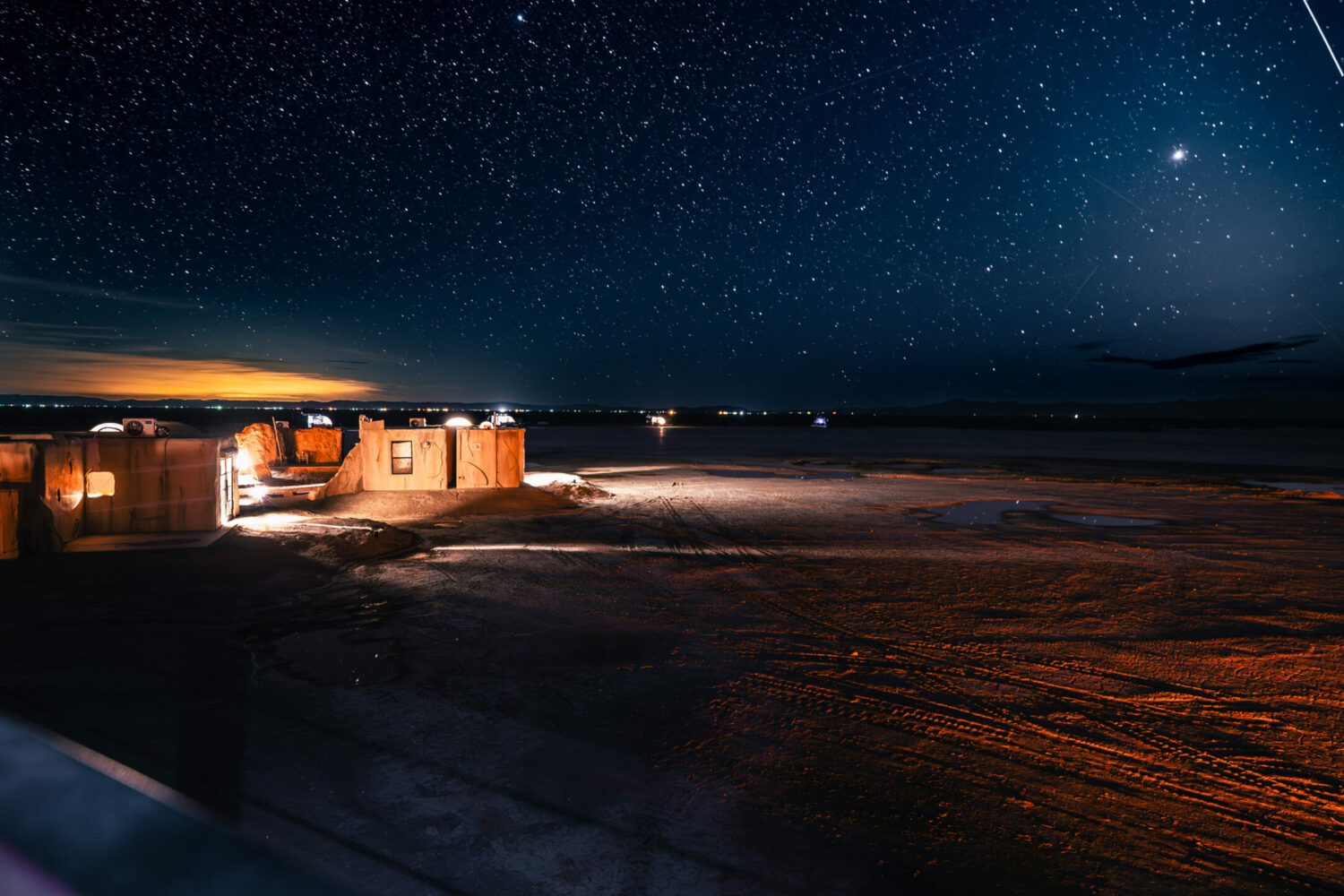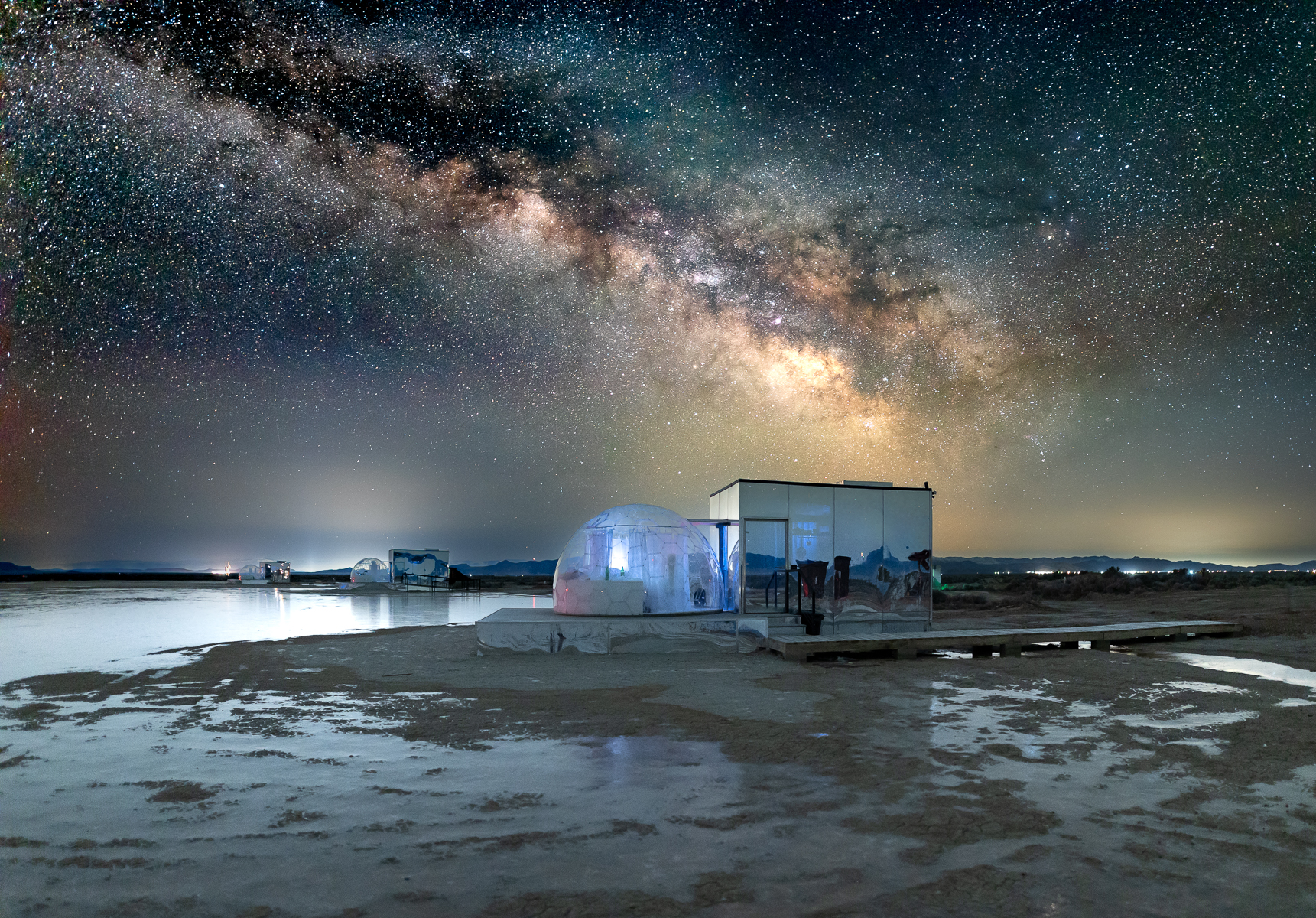
Inside Outpost X: A ‘radical’ immersive stay in southern Utah
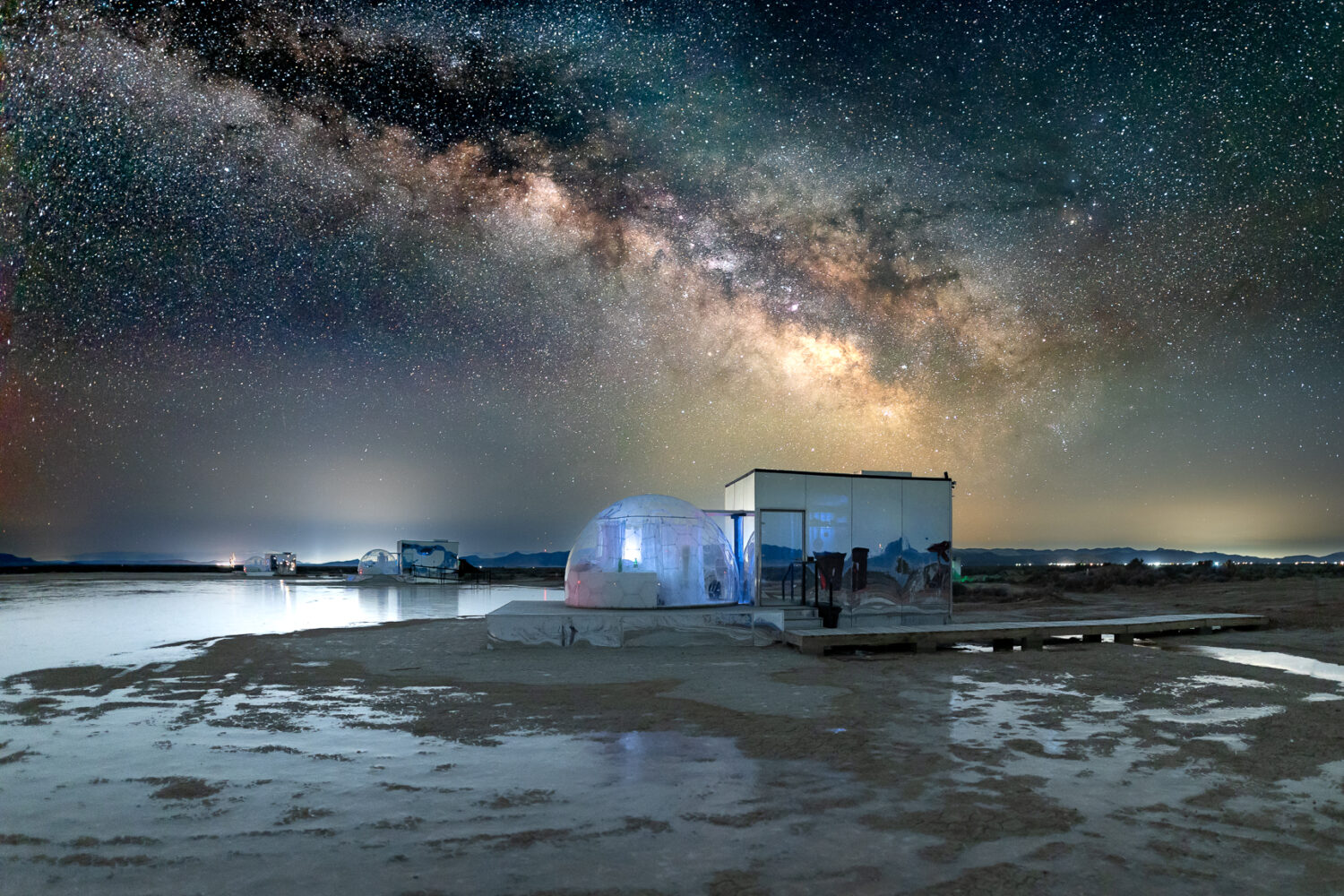
It’s easy to see why no bank’s small business loan committee — given preferences for backing more traditional ventures — was ever going to write a check financing Travis Chambers’ vision for Outpost X: a vaguely Star Wars-themed glamping experience on 240 acres of barren sagebrush basin an hour from the nearest traffic signal.
Wait, there’s more: The experience is actually less glamping than it is a sleepover on an active sci-fi movie set, where guests become not just observers but players in an unfolding interplanetary drama.
“I couldn’t get bank financing on this project because it’s so radical,” Chambers says, describing himself as a builder of immersive boutique resorts. Undeterred, he looked to crowdfunding, offering backers between one- and seven-night stay packages redeemable upon the project’s completion.
“The crowdfund exceeded my expectations five or sixfold,” Chambers admits. In the end, just over $900,000 was pledged. When Outpost X opened to the public earlier this year, it was practically booked solid through 2024.
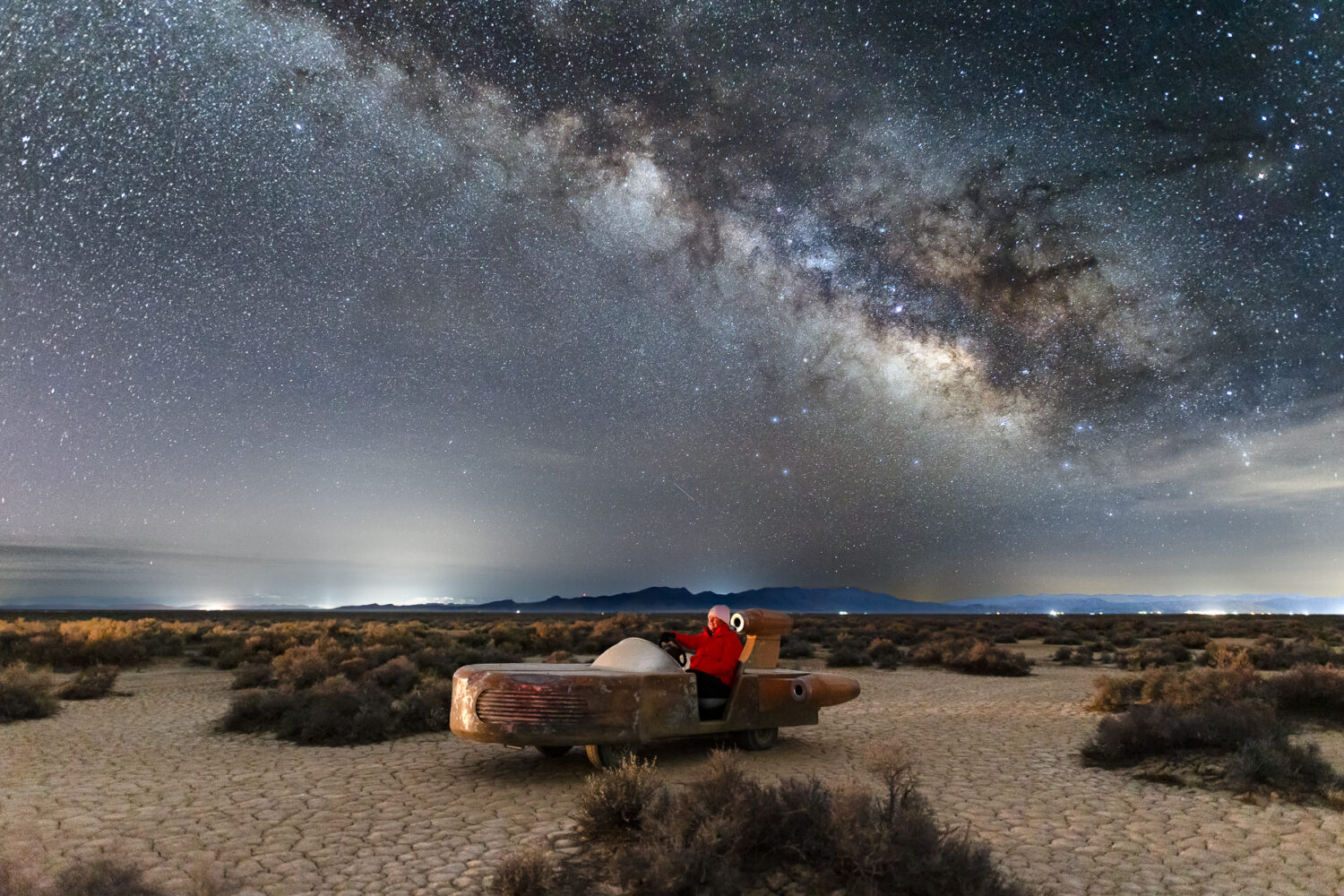
The hero’s journey
“The story is about two brothers whose home planet of Namaajin is devastated by a solar flare, and they’ve returned to resettle that world,” Chambers explains. “As the guest, you’re arriving as they’re beginning to rebuild.”
Upon arrival, guests learn what part they will play in the rebuilding.
“There’s a podcast for guests to listen to before they get here, voiced by professionals and written exactly like a movie, introducing all the characters, their stories, struggles and the planet’s history. When you get to your room, you’re introduced to the characters you will be playing: what they look like, their history and strengths and weaknesses,” Chambers says.
Having donned their characters’ costumes, guests then board “sand cruisers” — golf carts modified by a professional set builder to evoke young Luke Skywalker’s preferred form of transportation. These will carry guests on an audio-guided tour consisting of 20 interactive stops, each highlighting an element of Namaajin’s rich history, customs and lore.
This extensive onboarding process serves to immerse guests in the experience while also casting some of the necessary quirks of a hotel the size of Outpost X, with just seven rooms, as world-building texture.
“The economics of the hospitality industry require that in order to have staff, you have to scale up to 50 or 60 rooms, which I am certain would come at the expense of the magic and uniqueness of this experience,” Chambers says.
Obligated to forgo onsite staff, Chambers has figured out how to run Outpost X with just one caretaker and two local cleaners, meaning guests take care of themselves. Instead of allowing this to be an inconvenience, the story transforms it into an additional layer of authenticity.
For example, in the absence of a restaurant, guests are provided with original Namaajin recipes and the means to communally prepare them over an open fire; the Namaajinn culture and hard reality of rebuilding a scorched planet demand it.
As an aside, the recipes — each with its own pre-solar flare backstory, of course — are original creations, though they were designed relatively recently and on Earth by influencer chef Cody Candelario.
The unifying aesthetic of Outpost X is one of an “ancient future,” and every design decision reflects that. Of the seven habitations, four are future-themed, meaning sleek lines, shiny surfaces and beds set under crystalline geodesic domes perfect for stargazing. The remaining three are cave-themed: rocky and brutish, nearly devoid of straight lines. The sand cruisers are a mashup of future and past, seeming to levitate despite their resemblance to a well-used 1957 Chevrolet Bel Aire.
Even the physical setting, a seasonally dry lakebed 40 miles northwest of Cedar City, Utah, takes on an ancient-future quality as it’s covered with a network of deep, post-apocalyptic-looking cracks in the summer; a thin layer of strangely marbled icy clay suggestive of an advanced alien alloy in the winter; and two inches of water, making the habitations appear to float above the ground, in the spring and fall.
“We’re trying to turn the hospitality industry on its head. Luxury is now so commonplace it no longer makes you feel special; every five-star hotel is just like every other. We’re selling an immersive story and an adventure.”
Sets and settings
Chambers’ background is uncommonly varied and includes time in the filmmaking industry, where he became enchanted by movie sets and their indispensable role in advancing cinematic narrative. This became his inspiration for Outpost X.
“My favorite part of filmmaking is world-building: creating a story and then building physical spaces that tell that story,” Chambers says. “I wanted to merge an immersive hotel experience with a film set and then create a universe where you not only feel like you’re in a movie while you’re there but that you’re the main character.”
Chambers is opening another village in Puerto Rico this summer. It, and others in various stages of development, will be set on different planets but connected to Outpost X as additional episodes of the same story.
And the story doesn’t end when the stay does.
“Not only will all the village storylines be intertwined, but there are many hours of additional podcast content: custom songs, backstories, breathwork, astronomy lessons, workouts, weapons training and so much more,” Chambers says.
In other words, Outpost X is the first installment in what Chambers expects to become a pervasive brand with immersive storytelling villages as its core intellectual property.
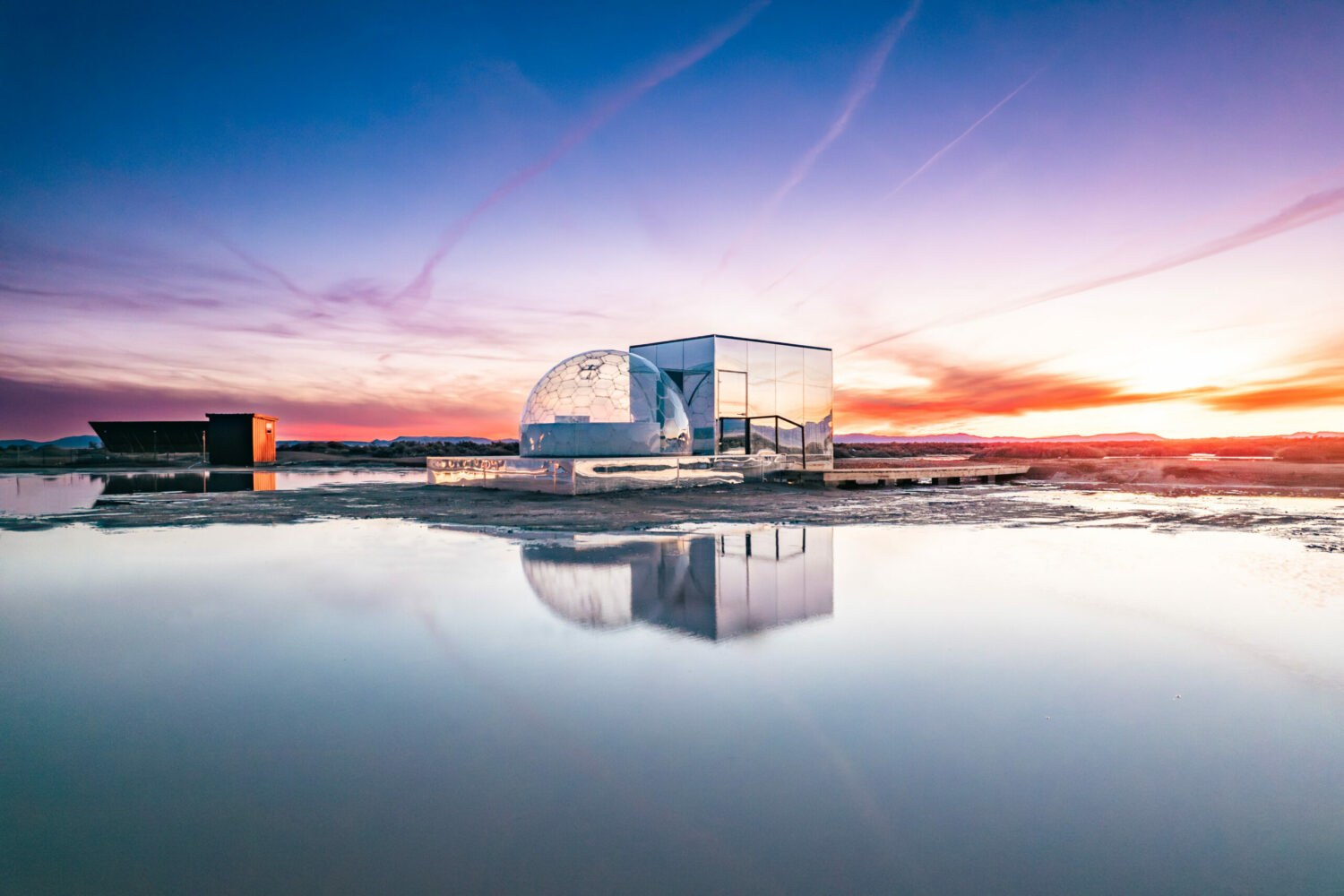
Small villages, big plans
“We’re trying to turn the hospitality industry on its head. Luxury is now so commonplace it no longer makes you feel special; every five-star hotel is just like every other. We’re selling an immersive story and an adventure. We think that’s what people are craving,” Chambers says. “You don’t get it at theme parks anymore because the corporate aspect of that world often costs them their magic.”
Chambers’ plans go far beyond disrupting the hospitality industry. He’s looking to disrupt society.
“There’s a deep philosophical mission at the root of this. Our big vision is to take what we learn about building villages that create human connection and apply it to long-term housing,” Chambers says. “Today, communities are built in a socially isolating way, and I believe that’s the cause of the mental illness crisis we’re seeing. I want to help fix those problems on a societal level by building spaces that foster connection. This is a big experiment in how to make people happier.” ![]()
